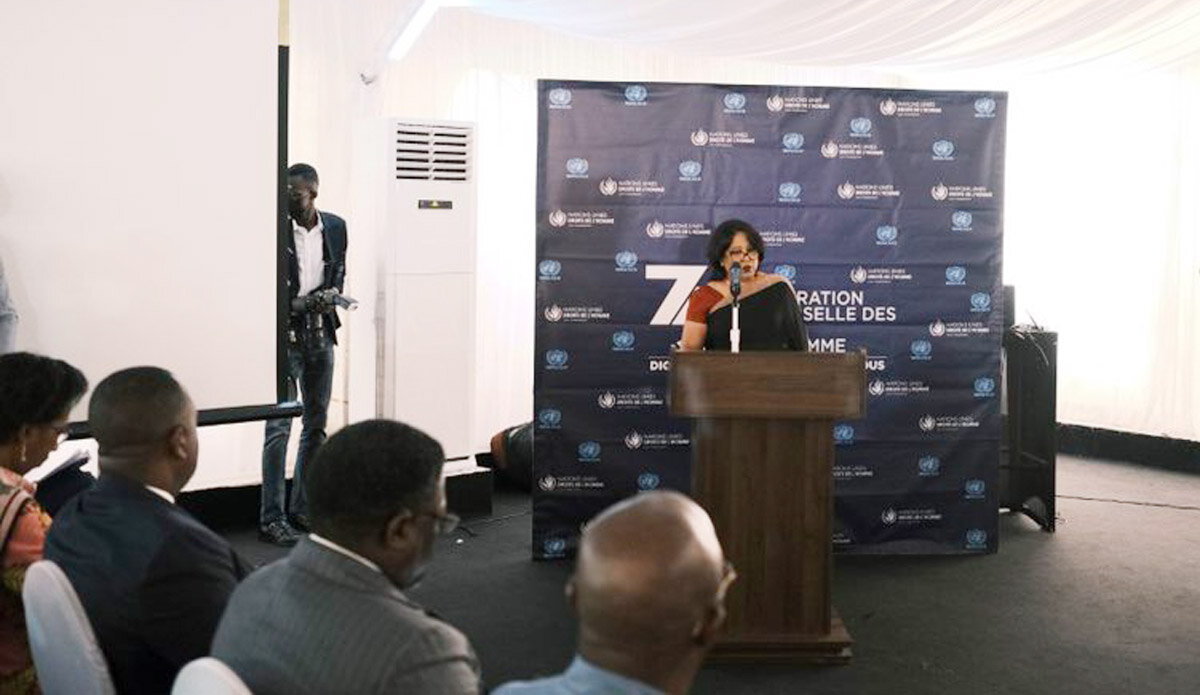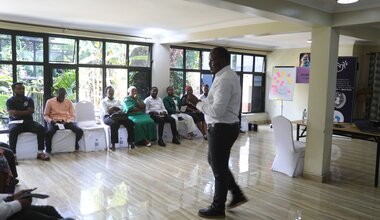Pramila Patten in DRC: "Sexual violence is devastating, we must act now before it's too late
Ten years ago, the United Nations and the Congolese government signed a joint communiqué on combating conflict-related sexual violence in the Democratic Republic of Congo.
This document, signed on March 30, 2013 and amended in 2015, constitutes a solemn act of commitment between the two parties and aims to implement solid mechanisms to combat sexual violence in conflict zones, put an end to impunity for perpetrators but also allow access to justice and reparation for victims.
The UN Special Representative of the Secretary-General on Sexual Violence in Conflict Zones, Pramila Patten, took part in a ceremony in Kinshasa on June 15 to commemorate the 10th anniversary of the signing of the Joint Communiqué.
In front of a gathering of officials from the Government and the Presidency of the Republic, NGOs and activists involved in the fight against sexual violence, Madame Patten expressed her shock at the increasing level of violence perpetrated against women and girls in areas plagued by insecurity, notably North Kivu and Ituri.
"I visited the Bulengo camp for displaced persons in Goma, and was struck by the brutality of the sexual violence", she said, adding that it was crucial to provide immediate and adequate assistance to all these victims, and to ensure that security was reinforced around the camps for internally displaced persons and that a protective environment was created in order to put an end to this violence.

She noted, with a twinge of sorrow, that sexual violence is one of the most devastating forms of violence. "The scars are long-lasting. Survivors suffer physical injury, psychological trauma, socio-economic marginalization, discrimination and stigmatization".
Speaking of statistics, she reported that from April 17 to 30, 2023, Médecin Sans Frontière (MSF) teams treated 674 victims of sexual violence in six IDP sites in North Kivu. In the first quarter of 2023 alone, MONUSCO documented 187 cases in the provinces of North and South Kivu, Ituri and Maniema. In 2022, UNICEF reported over 38,000 cases of gender-based sexual violence in North Kivu.
Ms. Pratten noted with pain that UNICEF even reports "an upsurge in sexual violence against children, with victims as young as 3 years old being sexually abused".
Efforts to end this violence
Pramila Patten nevertheless welcomed the enactment in the DRC, on December 26, 2022, of the law laying down the fundamental principles on the protection and reparation of victims of conflict-related sexual violence and victims of crimes against the peace and security of humanity. "This law will make it possible to settle a historic debt in terms of reparations with the survivors of sexual violence; it is extremely urgent to act now so that this situation, which is temporary in essence, does not become perennial and uncontrollable".
She therefore called for the necessary additional efforts to be made to popularize this law and raise awareness of it among stakeholders. "I invite civil society organizations to play an important role in achieving this objective", she said.
Speaking from the rostrum of the commemoration, Mireille Masangu, Minister of Gender, Family and Children, pointed out that the issue of sexual violence is of the utmost concern to the government. "There is a national government strategy to combat violence," she said.
Madame Masangu also spoke of the Zero Tolerance policy towards perpetrators of rape, launched in 2021, the Kinshasa agreements on positive masculinity, the government's project to create a national fund to provide reparation for victims and children born of rape, and the setting up of a Task Force to monitor and evaluate this project.
The army, too, takes up the cause
On the side of the Armed Forces of the Republic, indexed as perpetrators of sexual violence in conflict zones, it is stated that several mechanisms are already underway to reverse this trend.
It's within this context that a monitoring and evaluation commission for the fight against sexual violence has been in place since 2015, said General Batabombi Apanza, who chairs the commission. He added that there is an action plan based on 5 pillars to succeed in reversing this trend: prevention of violence, repression of perpetrators, communication, protection and evaluation.
Speaking of the repression pillar, General Apanza stated that over 1,291 military perpetrators of rape have already been brought before the military justice system, 550 have already been tried and 541 cases are under investigation. He concluded by saying that "the army is committed to this fight, and soldiers found guilty are already facing the rigors of the law. We are pleading with the UN to remove us from its blacklist, considering the efforts made in this fight".
The Congolese army is on the UN blacklist for repeated cases of rape perpetrated by officers and troops in war zones.
 UN
UN United Nations Peacekeeping
United Nations Peacekeeping






